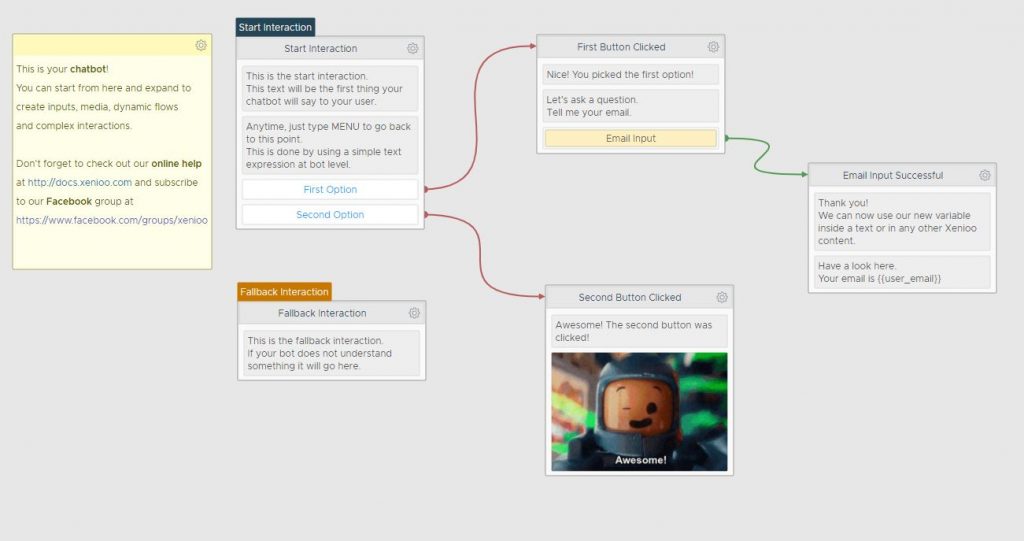

Don’t take our word for it let’s look at some ways in which your attachment to legacy ERP systems can be harming your business more than you think.Īlso Read: 6 Signs that your Legacy System is an obstacle for your business’s Digital Transformation! Critical Challenges Associated with Traditional ERPs In today’s cutthroat environment, an obsolete ERP system can set your business far behind what you realize. However, none of these reasons can come close to justifying what businesses risk losing if they do not modernize their ERP systems. This can make finding the right resources to manage the project challenging, leading to delays or even project failure.
#Low code chatbot app upgrade
Risk: Any major system upgrade or replacement carries inherent risks, such as data loss or system downtime.The cost of implementing a new ERP system can be substantial, and many organizations may not have the budget to justify the expense. High costs: ERP modernization can be expensive, especially for larger organizations with complex systems.
#Low code chatbot app software
These systems are often tightly integrated with other software and hardware, making it difficult to replace them without significant disruption to business operations.

This highlights the continued reliance on traditional ERP systems, despite the increasing popularity of cloud-based solutions. These systems are typically installed on-premises and offer a range of functions, such as financial management, HR management, supply chain management, inventory control, and more.Īccording to a 2021 report by Panorama Consulting, on-premise ERP systems still hold 46.9% of the market. Traditional and legacy ERP systems have been the backbone of organizational processes for several decades now.

Let’s dive in! Traditional ERP Systems: An Overview So, what is it that can make or break the effectiveness of your ERP system? How can you ensure that you are set up for success by ERP modernization? How ERP with no-code low-code can help your business to eliminate all the roadblocks that come with traditional ERP? We’ll try to answer that and more in this article.

Not all of them can be trusted to give you the right results and to build a foundation for your business to succeed. However, not all ERP systems are built the same.
#Low code chatbot app manual
Without an ERP, businesses are forced to rely on disparate systems and manual processes, which can result in errors, delays, and inefficiencies that can ultimately impact the bottom line. This unified system offers a wealth of benefits, including increased efficiency, improved accuracy and productivity, enhanced visibility into business operations, and better decision-making capabilities. In fact, 53% of businesses believe ERP is one of the priority sectors for investments.Īt their core, ERPs provide a centralized platform for managing a company’s core business processes, including everything from accounts to customer relationship management. They have become a critical tool for modern businesses across a range of industries. What are some benefits of ERP modernization for an organization and its employees?īill Gates once said, “How you gather, manage, and use information will determine whether you win or lose.” While this holds true for a lot of contexts, we can’t help but notice how aptly it fits enterprise resource planning (ERP) systems.


 0 kommentar(er)
0 kommentar(er)
